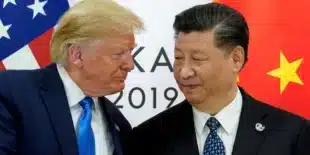On Thursday, TikTok presented its case in a federal appeals court, challenging the U.S. Department of Justice’s portrayal of its connections to China. The company is fighting a law that mandates its Chinese parent company, ByteDance, to divest TikTok’s U.S. operations or face prohibition.
TikTok contends that the Justice Department has misrepresented the facts, arguing that it does not pose a national security risk as claimed. The government fears that the Chinese government could access data on American users and subtly influence the content they see. In contrast, TikTok asserts that all U.S. user data is securely stored on domestic cloud servers maintained by Oracle, and that all content moderation is conducted stateside.
The legislation, signed into effect by President Joe Biden on April 24, sets a deadline of January 19 for ByteDance to either sell TikTok or have the app face a ban. The White House aims to terminate Chinese-based ownership of TikTok on national security grounds without imposing a complete ban on the app.
This legal battle is intensifying as the presidential election on November 5 approaches, with the appeals court set to hear oral arguments on September 16.
Recent developments saw Republican presidential candidate Donald Trump indicating he would oppose a TikTok ban after joining the platform in June. Similarly, Democratic candidate Vice President Kamala Harris also joined TikTok in July, using it to enhance her campaign’s social media strategy.
TikTok has also argued that the law infringes on its right to free speech, countering the Justice Department’s claim that the app’s content moderation does not enjoy constitutional protection because it represents “speech of a foreigner.”
The company also challenged the notion that foreign content lacks constitutional protection, suggesting that under the government’s logic, even U.S. newspapers republishing content from foreign entities like Reuters would not be constitutionally protected.
Moreover, the law prohibits major tech platforms like Apple and Google’s parent company Alphabet from distributing TikTok, and bars internet hosting services from supporting it unless ByteDance divests it.
The legislation was passed swiftly by Congress amid concerns that China could potentially exploit the app to gather data on Americans or engage in espionage.


